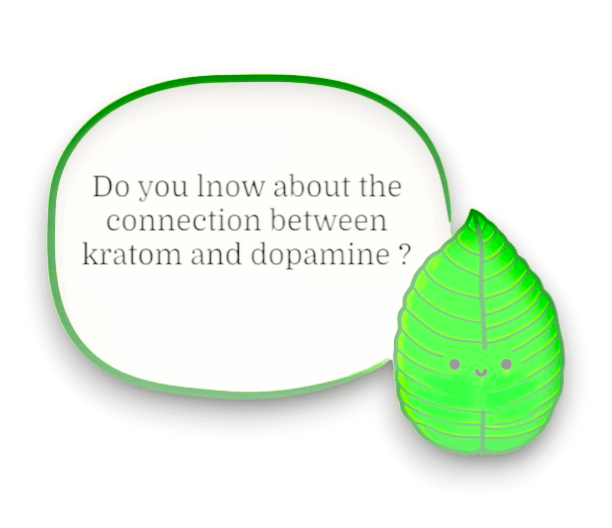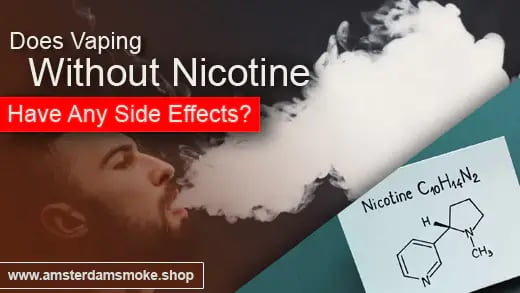
The Connection Between Kratom and Dopamine
The Connection Between Kratom and Dopamine: Can It Boost Your Mood Naturally?
In recent years, kratom (Mitragyna speciosa) has gained popularity worldwide, attracting attention for its potential therapeutic benefits, particularly in mood enhancement and overall well-being. This tropical tree, native to Southeast Asia, has leaves that contain compounds capable of producing stimulant and sedative effects, depending on the dosage and strain. One of the most compelling aspects of kratom is its relationship with dopamine, a critical neurotransmitter in the brain associated with pleasure, motivation, and reward. But can kratom truly boost your mood naturally? Let’s explore the connection between kratom and dopamine to understand how it might improve your mood and emotional balance.
Understanding Dopamine: The Brain's Reward Chemical
Dopamine is often referred to as the "feel-good" neurotransmitter due to its significant role in the brain's reward system. It regulates various functions, including mood, attention, learning, and motor control. When dopamine is released, it creates feelings of pleasure and satisfaction, reinforcing behaviors that are beneficial for survival. This release of dopamine is why engaging in enjoyable activities—such as eating, exercising, or socializing—can lift our spirits and enhance our overall mood.
Optimizing dopamine levels is essential for emotional well-being. When dopamine levels are healthy, individuals tend to experience increased motivation, better mood stability, and enhanced overall life satisfaction. However, when dopamine levels are too low, it can lead to a diminished sense of enjoyment, reduced motivation, and difficulty focusing. By understanding the connection between kratom and dopamine, we can see how kratom might help balance dopamine levels and improve mood naturally.
The Role of Kratom in Dopamine Modulation
Kratom contains several active alkaloids, primarily mitragynine and 7-hydroxymitragynine, which interact with the brain’s opioid receptors. This interaction has led researchers to explore how kratom influences dopamine release and its potential effects on mood and motivation. While research on this topic is still in its early stages, preliminary studies suggest several interesting mechanisms:
Dopaminergic Activity: Mitragynine and 7-hydroxymitragynine may increase dopamine release in the brain, mimicking the effects of certain opioids but through a different mechanism. This effect could contribute to the mood-enhancing and euphoric experiences that many users report. The stimulation of dopamine receptors may provide a sense of pleasure and reward, which might explain why some kratom users experience elevated mood and a boost in overall well-being.
Mood Enhancement: As kratom interacts with dopamine receptors, it has the potential to enhance mood and provide feelings of pleasure and satisfaction. The release of dopamine plays a key role in generating positive emotions, and kratom’s ability to support this process could help promote an uplifting experience for many users, that is why it is so important to know the connection between kratom and dopamine.
Potential Mood-Boosting Benefits of Kratom
Enthusiasts of kratom often report several mood-enhancing benefits, which may be attributed to its influence on dopamine and other neurotransmitters. Here are some of the most notable effects:
Increased Energy and Motivation: Certain strains of kratom, particularly those high in mitragynine, can have stimulating effects that enhance energy levels, focus, and motivation. This can be especially beneficial for individuals looking to boost their productivity or overcome a lack of drive. Research has shown that improving dopamine function is closely linked with increased motivation and goal-directed behavior. Users often report feeling more productive and engaged in their daily tasks after consuming kratom, particularly strains known for their energizing properties.
Enhanced Social Interaction: Many users find that kratom helps them feel more sociable and open, which may contribute to positive interactions and a greater sense of well-being. Kratom’s potential to enhance dopamine release might foster a sense of joy and satisfaction during social situations, making it easier for individuals to form meaningful connections and enjoy social exchanges. For those who typically find social situations challenging, kratom may help create a relaxed and confident atmosphere, encouraging genuine interactions.
Mood Stability: By potentially enhancing dopamine activity, kratom may help stabilize mood and contribute to a more balanced emotional state. Those who experience fluctuations in mood or struggle to maintain emotional equilibrium could find kratom helpful in promoting consistency and overall mood stability. The calming effects of kratom, combined with its ability to modulate neurotransmitter levels, can support a healthier emotional state.
The Science Behind Kratom’s Dopamine Boost
The key to kratom’s mood-enhancing effects lies in its ability to influence dopamine. Dopamine, often referred to as the brain's “reward” chemical, is responsible for generating feelings of pleasure, satisfaction, and motivation. This neurotransmitter plays a crucial role in reinforcing behaviors that bring about positive outcomes.
When kratom is consumed, its active compounds, especially mitragynine and 7-hydroxymitragynine, bind to opioid receptors in the brain. This interaction leads to a cascade of events that can trigger the release of dopamine, enhancing the brain's reward system. This can result in heightened feelings of pleasure, motivation, and an overall improved mood. While kratom does not necessarily work in the same way as traditional stimulants, its ability to modulate dopamine levels may be one of the reasons users experience an uplifted state of mind.
The relationship between kratom and dopamine is still being studied, but current evidence points to kratom’s potential as a natural mood enhancer. By stimulating dopamine production, kratom might offer users a more balanced, positive outlook on life.
Considerations for Responsible Kratom Use
While the potential mood-boosting benefits of kratom are promising, it's important to approach its use with caution. Here are a few key considerations for ensuring a safe and responsible kratom experience:
Risks of Dependency: Like any substance, kratom should be used responsibly to avoid dependency or tolerance. While kratom is often considered safe for occasional use, regular consumption can lead to dependence, especially when used in high doses. It’s important to be mindful of how often you use kratom and avoid overuse. Taking breaks and practicing moderation will help prevent negative side effects and maintain kratom’s benefits.
Quality Control and Sourcing: The kratom market is largely unregulated, and product quality can vary. To ensure safety and efficacy, it’s essential to purchase kratom from reputable vendors who provide third-party testing. This helps ensure that the kratom is free from contaminants and accurately labeled, providing transparency about its alkaloid content. Consuming kratom from a trusted source ensures that you are receiving the full benefits without the risk of harmful additives or impurities.
Consultation with Healthcare Professionals: Before incorporating kratom into your wellness routine, it’s advisable to consult with a healthcare provider, particularly if you have pre-existing health conditions or take medication. Kratom can interact with certain medications and may not be suitable for everyone. A healthcare provider can offer personalized advice on whether kratom is a good fit for your needs and help ensure safe use.
Conclusion: The Future of Kratom and Mood Enhancement
The connection between kratom and dopamine presents an exciting possibility for individuals seeking natural ways to boost their mood and enhance their overall well-being. Preliminary evidence and anecdotal experiences suggest that the connection between kratom and dopamine may positively influence dopamine levels and contribute to mood enhancement, but more research is needed to fully understand its mechanisms and long-term effects.
If you're considering kratom as a natural mood-enhancer, it’s essential to prioritize responsible use. Understand the connection between kratom and dopamine, be mindful of your dosage, and choose a high-quality product from trusted sources. By educating yourself and using kratom in moderation, you can take advantage of its potential benefits while ensuring your health and safety.
As interest in kratom continues to grow, ongoing research and greater public awareness will help shape our understanding of this powerful plant. For those looking to explore kratom as a means of improving mood, it’s important to do so with curiosity and care, ensuring a safe and informed approach to this exciting natural supplement.




